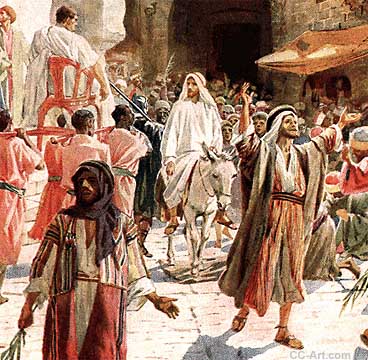 The Bible speaks of God in so many ways. It describes his qualities and relates his actions. It also tells of his wishes for us, human beings. Often too, it speaks of his future interventions. All this in a language which is not abstract but quite vivid, one could almost say picturesque.
The Bible speaks of God in so many ways. It describes his qualities and relates his actions. It also tells of his wishes for us, human beings. Often too, it speaks of his future interventions. All this in a language which is not abstract but quite vivid, one could almost say picturesque.
It is the case in today’s gospel (2nd Sunday of Advent, A) where we are told that the Lord is coming “with his winnowing fan in his hand” (Mt.3:1-12).
In our modern high-tech world we do not see much winnowing being done as it was in Jesus’ time. Such activity can still be observed in some areas of Africa or Asia but many of us would not have seen this otherwise than on television.
This does not mean that the message of the gospel text is no longer relevant. If we ask ourselves why winnowing is being done, the answer is clear: To separate the good grain from the straw or other unwanted material. This example speaks of sorting out, or getting rid of something to keep the good, the best.
Is Advent not a good period to do exactly this in our lives? We could look at it as a ‘Sorting out season’ – sorting out the different areas of our daily living: our opinions, our judgements, our values, our attitudes, our choices, our decisions, our plans, our habits, our expectations…
John the Baptist is calling people to ‘Repent…’ This involves a change, a ‘straightening up’ – the text says it clearly: “Prepare a way for the Lord, make his paths straight.” Perhaps the best way to do this is… to make straight our own paths!
To move away from our crooked ways, our distorted vision of life and people, our narrow-minded opinions, all that is us is a deviation from truth, justice, respect of others. Indeed, winnowing can still be part of a ‘modern’ life-style!

 Sitting in the bus, I kept thinking about… ambitions. Good? Not so good?
Sitting in the bus, I kept thinking about… ambitions. Good? Not so good?